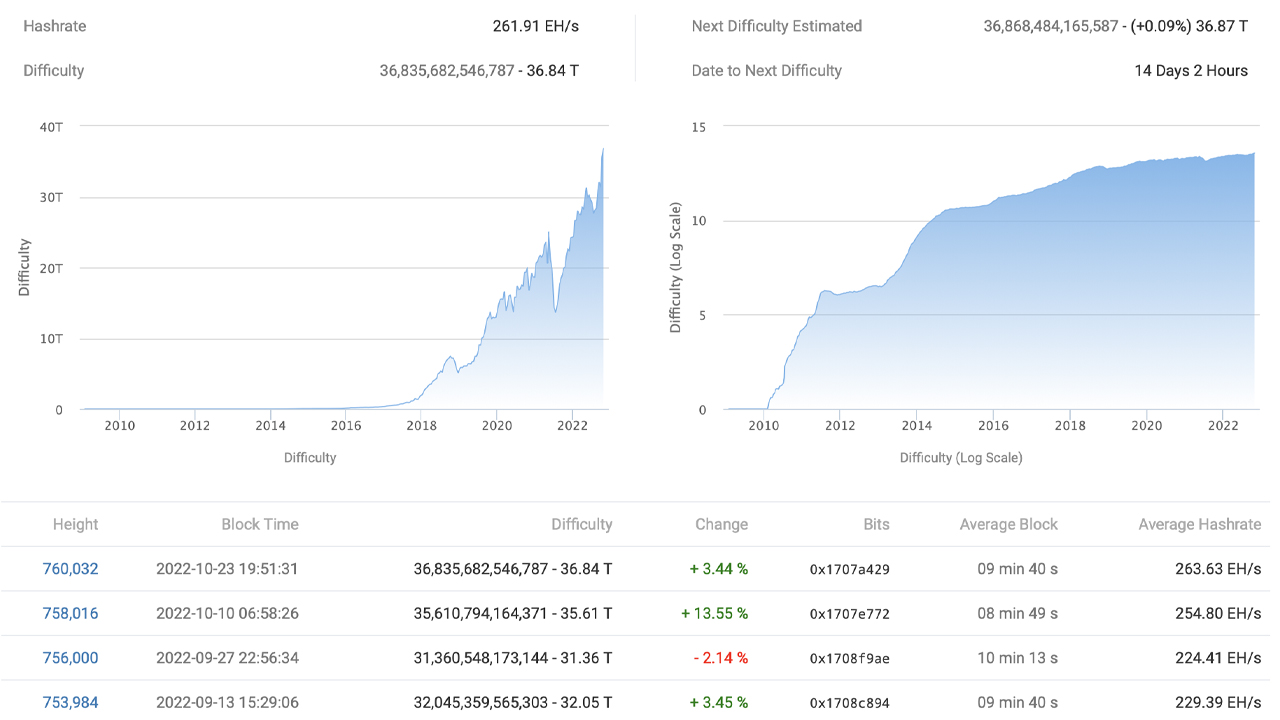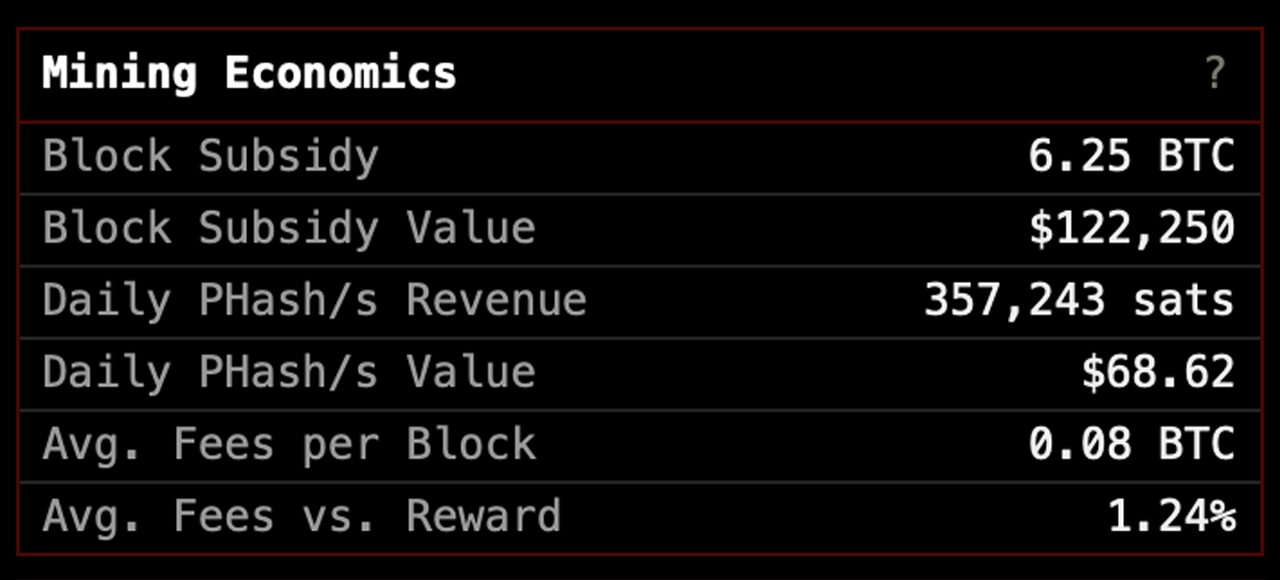Bitcoin’s Mining Difficulty Jumps 3.44% Higher Reaching Another Lifetime High – Mining Bitcoin News

Bitcoin recorded another mining difficulty rise on Sunday, October 23, 2022, at block height 760,032 rising 3.44% higher. This means that not only is it 3.44% harder to find a bitcoin block subsidy, the network’s mining difficulty has also reached another all-time high (ATH) by tapping 36.84 trillion.
Bitcoin’s Mining Difficulty Adjusts Upwards by 3.44%, Now at 36.84 Trillion
This weekend, Bitcoin’s (BTC) mining difficulty jumped 3.44% higher than the height miners dealt with during the past two weeks or the last 2,016 blocks. The network’s difficulty has reached a lifetime high at 36.84 trillion, following the 3.44% shift on Sunday evening (ET).

The rise on Sunday follows the 13.55% increase Bitcoin’s difficulty recorded on October 10, 2022, at block height 758,016. The 13.55% increase was 2022’s largest Bitcoin difficulty rise, and it took place as BTC’s total hashrate reached an ATH on October 11, 2022, at block height 758,138.
On October 11, the network’s hashrate reached 325.11 exahash per second (EH/s) which equates to three hundred twenty-five quintillion one hundred ten quadrillion hashes per second.
As Bitcoin.com News reported on October 21, the network’s hashrate has been oblivious to the difficulty’s lifetime high and the lower BTC prices, as Bitcoin’s computational power remains stronger than ever.

Currently, BTC’s hashrate is coasting along at 260 to 275 EH/s. The reason why the difficulty increased on Sunday is because the 2,016 blocks were mined faster than the two-week average.
Prior to the shift, BTC’s block time average on Sunday, October 23, 2022, at 5 p.m. (ET) was around 8:79 minutes. The October 21 mining update that highlights the network’s hashrate strength noted that block intervals were between 8:30 minutes to 9:35 minutes.
Satoshi’s difficulty retargets attempt to keep block intervals at an average rate of ten minutes per block. If the 2,016 blocks in between a difficulty retarget is less than the two-week average, then the difficulty will rise and a decrease will occur if it takes too long (more than two weeks) to mine the 2,016 blocks.
Currently, the top three bitcoin mining pools Foundry USA, Antpool, and F2pool command 60.36% of the global hashrate on Sunday. During the last three days, 444 BTC blocks were mined into existence and Foundry discovered 113 of those blocks.
Antpool captured 90 blocks and F2pool found 65 of the 444 blocks found. 12 known mining pools are dedicating SHA256 hashrate toward the BTC chain, and 4.05% of the global hashrate belongs to unknown hashpower, otherwise known as stealth miners.
At the time of writing a block subsidy’s USD value is $122,250, and the next expected mining difficulty retarget is due on or around November 6, 2022. There’s roughly 79,900 blocks left until the next block subsidy halving which is estimated to occur between February 24, 2024 and April 20, 2024.
What do you think about Bitcoin’s network difficulty reaching an all-time high on Sunday, October 23, 2022? Let us know what you think about this subject in the comments section below.
Image Credits: Shutterstock, Pixabay, Wiki Commons
Disclaimer: This article is for informational purposes only. It is not a direct offer or solicitation of an offer to buy or sell, or a recommendation or endorsement of any products, services, or companies. Bitcoin.com does not provide investment, tax, legal, or accounting advice. Neither the company nor the author is responsible, directly or indirectly, for any damage or loss caused or alleged to be caused by or in connection with the use of or reliance on any content, goods or services mentioned in this article.















